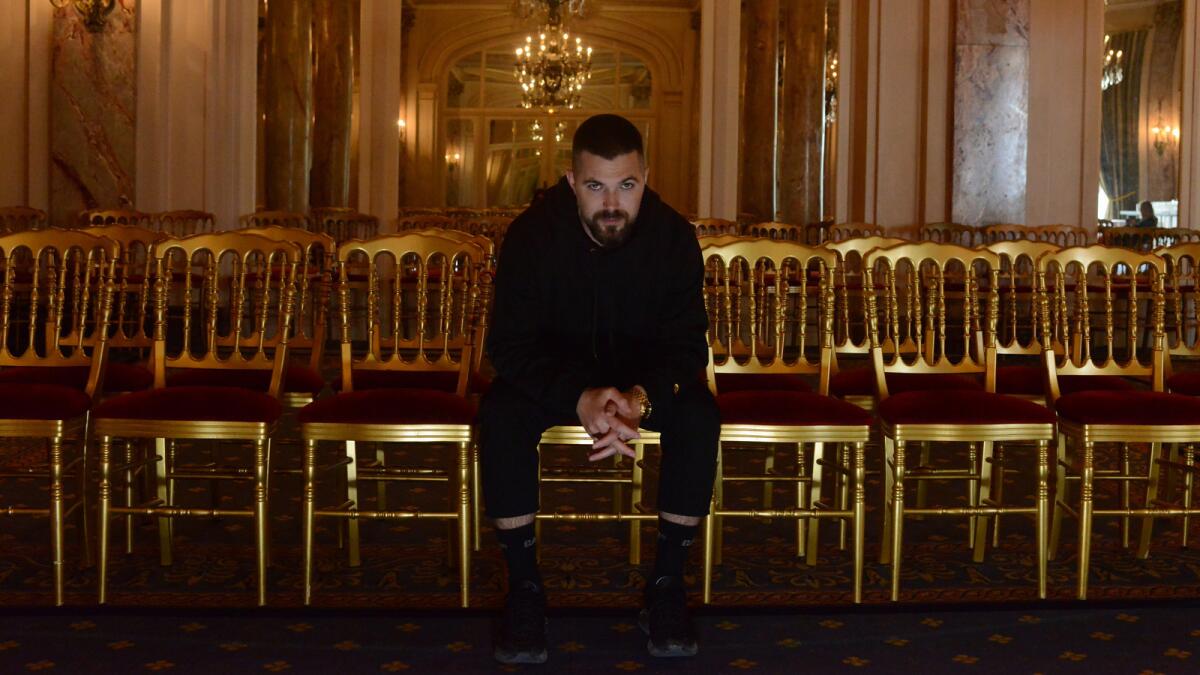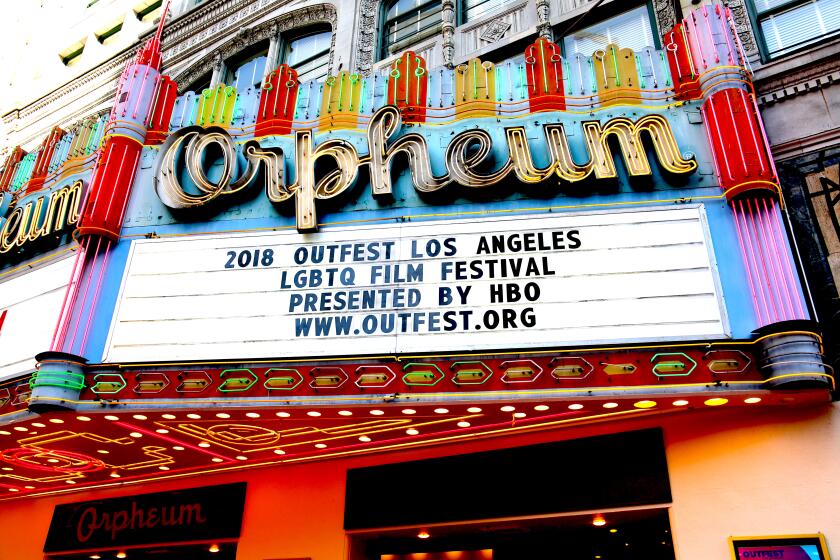Robert Eggers, director of the smart and scary ‘The Lighthouse,’ sees comfort in horror

CANNES — What is it about horror movies? Why do we seek them out? What is this thing called fear?
In truth, I’m hardly the person to answer those questions. Horror terrifies me, and I tend to stay away.
But this is the Festival de Cannes, where all things are permitted and everything is possible, so I dared myself to see “The Lighthouse,” premiering at the Directors’ Fortnight event, and came away transfixed.
Which is how I came to talk to a quiet, articulate filmmaker who knows all there is to know about dread and disquiet, Robert Eggers.
The 35-year-old director (who also co-wrote “Lighthouse” with his brother Max) had a major horror success with his debut, 2015’s “The Witch.”
A scary story set in 1630 New England, “The Witch” won Independent Spirit Awards for best first feature and first screenplay as well as Sundance’s U.S. Drama best directing award for Eggers himself.
Asked to speculate on horror’s appeal, Eggers, after apologizing for “speaking reductively,” theorizes that “for people interested in the darkness inside themselves who don’t want to face or confront it directly, horror provides a comfortable environment.
“In earlier cultures with pagan belief systems, light and dark were celebrated equally, people were around death a lot. In contemporary Western culture, we don’t have that, and horror is a place you can be immersed in it.”
As for himself, Eggers says that, as a kid, “The ‘Friday the 13th’ Jason movies were way too scary for me. I liked the classic Universal and Hammer movies. I enjoyed being sick at home with Campbell’s soup and Vincent Price, but I looked at those other films through my fingers.”
Though horror per se was not necessarily on Eggers’ agenda when he began thinking of directing, “I was interested in dark subject matter for sure, including folklore, fairy tales, mythology, archetypal stories of people going into the bowels of the forest.”
He soon realized, however, that “genreless dark material couldn’t get financed. I felt I could do horror without compromising my aesthetics. A lot of contemporary American independent filmmakers are turning to genre to get interesting stuff financed.”
As to “The Lighthouse,” set to be distributed by A24 this fall, while Eggers agrees that the film “uses a lot of horror tropes,” he sees it, with a nod to the pulp magazine that published H.P. Lovecraft and Robert E. Howard, as more of “a weird tale, made with tension and dread.”
FULL COVERAGE: Cannes Film Festival »
Set in a way remote island lighthouse far off the coast of Maine in the 1890s, it fills every frame with disturbance and despair, relating what happens (nothing good) to a pair of lighthouse keepers who are stationed there for four weeks and start to drive each other disturbingly mad.
These opposites who do not attract are Thomas Wake (Willem Dafoe), a veteran salt, full-bearded and autocratic, and sullen new kid on the island Efraim Winslow (Robert Pattinson).
Superlatively shot by cinematographer Jarin Blaschke, Eggers’ longtime close collaborator, on black and white 35 mm footage, “The Lighthouse” has been made to look as if it first saw the light of day more than a century ago.
Coming up with a physical lighthouse that fit all the particulars Eggers needed to shoot initially proved problematic.
The director looked at many existing lights, including one at Point Cabrillo in Northern California because it has a rare working Fresnel lens that is central to the film’s plot.
Finally, however, because no structure met all the necessary criteria, production designer Craig Lathrop and his team built a 70-foot lighthouse (with a working beacon that could be seen 16 miles out to sea) plus adjacent buildings on the volcanic rock of Cape Forchu, Nova Scotia.
“Everyone was saying we were never going to be able to build a lighthouse, that we’d have to build half and extend it with CG, but there is no fun in that,” recalls Eggers. “They found a way to do it.”
That attention to detail, that meticulousness of vision, is something that characterizes Eggers’ approach to filmmaking and the quality he looks for in his team.
Sound designer Damian Volpe, for instance, not only dug a grave to see what it would sound like to shovel dirt back into it, he was equally uncompromising when Eggers wasn’t satisfied late in the mix with the sound of lobster traps being dragged.
The designer and his wife went out to a lobster area on their weekend and sent the director photos that showed both of them dragging traps and recording to get that elusive sound right.
“I enjoy the specificity of period accuracy; it puts everyone on the same page,” the director says. “You research, and you say ‘That’s the tea kettle, period, we’ve got to find that exact one.’
“Guillermo del Toro is able to invent his worlds. I would find the pressure of having to invent crippling.”
The director and his brother also invented elaborate torrents of period-specific dialogue for the two lighthouse keepers, which the two actors approached each in his own way.
Dafoe, with extensive theatrical experience, welcomed the intense one-week rehearsal period, while Pattinson, a film star with “Batman” in his future, was so unsettled by it that he claimed in a post-film Q&A here that it had lasted three weeks.
When the “Lighthouse” gang was asked in that Q&A if any animals were harmed in the shoot, Dafoe pointed at himself and Pattinson and cracked “these two.”
“Because they worked so differently, it created a cool tension,” Eggers says. “That increased chemistry on screen, like Laurence Olivier and Dustin Hoffman in ‘Marathon Man.’ They got along; that’s enough.”
Filming was often done in horrible storm conditions that broke five rain deflectors and battered the camera, an atmosphere the director says was just fine with him.
“I truly enjoy being freezing cold in the rain,” Eggers says with conviction. “If it’s not a challenge, it’s not worth doing. That may sound like a generic quote, but if I’m not stretching myself, my crew and my collaborators, there’s no way I’m going to be satisfied with my work.”
More to Read
Only good movies
Get the Indie Focus newsletter, Mark Olsen's weekly guide to the world of cinema.
You may occasionally receive promotional content from the Los Angeles Times.











